Interview: Lucy Buckingham on middle-distance racing and 2022 goals
Lucy Buckingham opens up to 220 about race strategy, what she’d like to see change in the sport and returning from the brink of quitting triathlon in 2019

She’s a powerhouse when it comes to 70.3 racing, with numerous Ironman, ITU, and Challenge wins under her belt, but 30-year-old Lucy Buckingham (née Hall) is also one of the first generations to grow up in triathlon, starting at the ripe age of eight having followed in her dad’s footsteps.
Fast-forward a few years and she’s taking on the world’s stage at the London 2012 Olympics. Chosen as domestique to Helen Jenkins, Buckingham scored the fastest swim leg of the race, and propelled Jenkins on to secure an impressive fifth place.
Known as La Sirène (mermaid) in France for her incredible swimming ability and fiery red hair, Buckingham’s fired-up and intent on making a name for herself this season.
220: You started the new year by getting married to long-term partner and fellow athlete Mark Buckingham, congratulations! But you also got Covid! How have you altered training as you recovered?
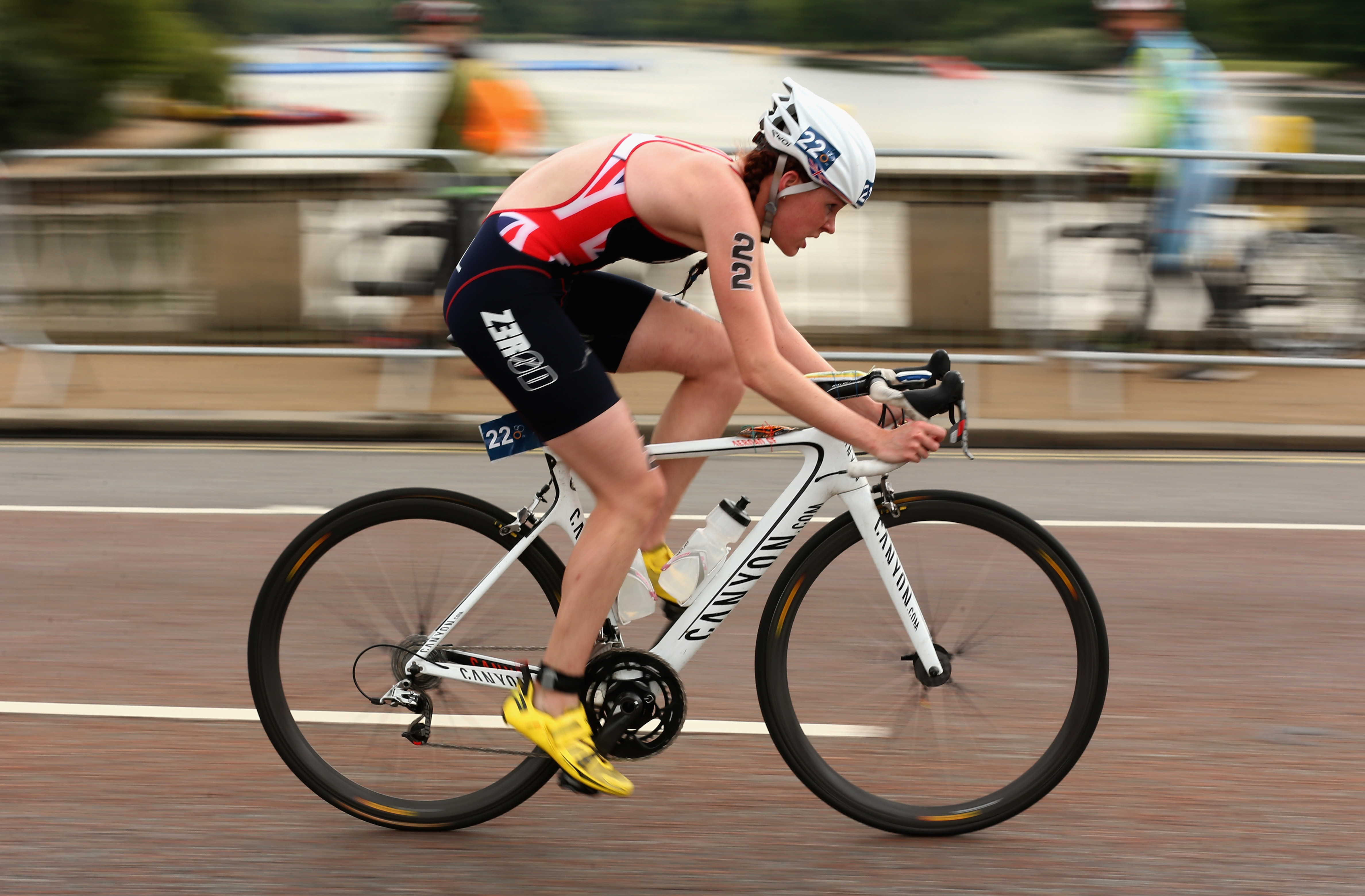
Lucy Buckingham: Thanks! And yeah, I had about a month off around Christmas, the plan was to just chill out and enjoy the festivities. But getting Covid just delayed getting back into training another 10 days. I’d heard of other athletes having long Covid symptoms and cardiac problems, so I was super careful and used heart rate quite a lot, just to make sure I wasn’t overdoing it.
Mark is the head coach at Brownlee Fitness, he’s also now your coach, how is that dynamic?
It’s really good, I think it could have gone one way or the other! He’s a very patient guy, because sometimes doing a lot of training together can get quite intense when you’re tired and fatigued. Mark was Jonny’s [Brownlee] training partner originally, he supported Jonny leading into Tokyo and then retired after that.
Your last race of the 2021 season was Clash Daytona when Jackie Herring just pipped you in the last few minutes. Is there anything that you would’ve done differently in that situation?
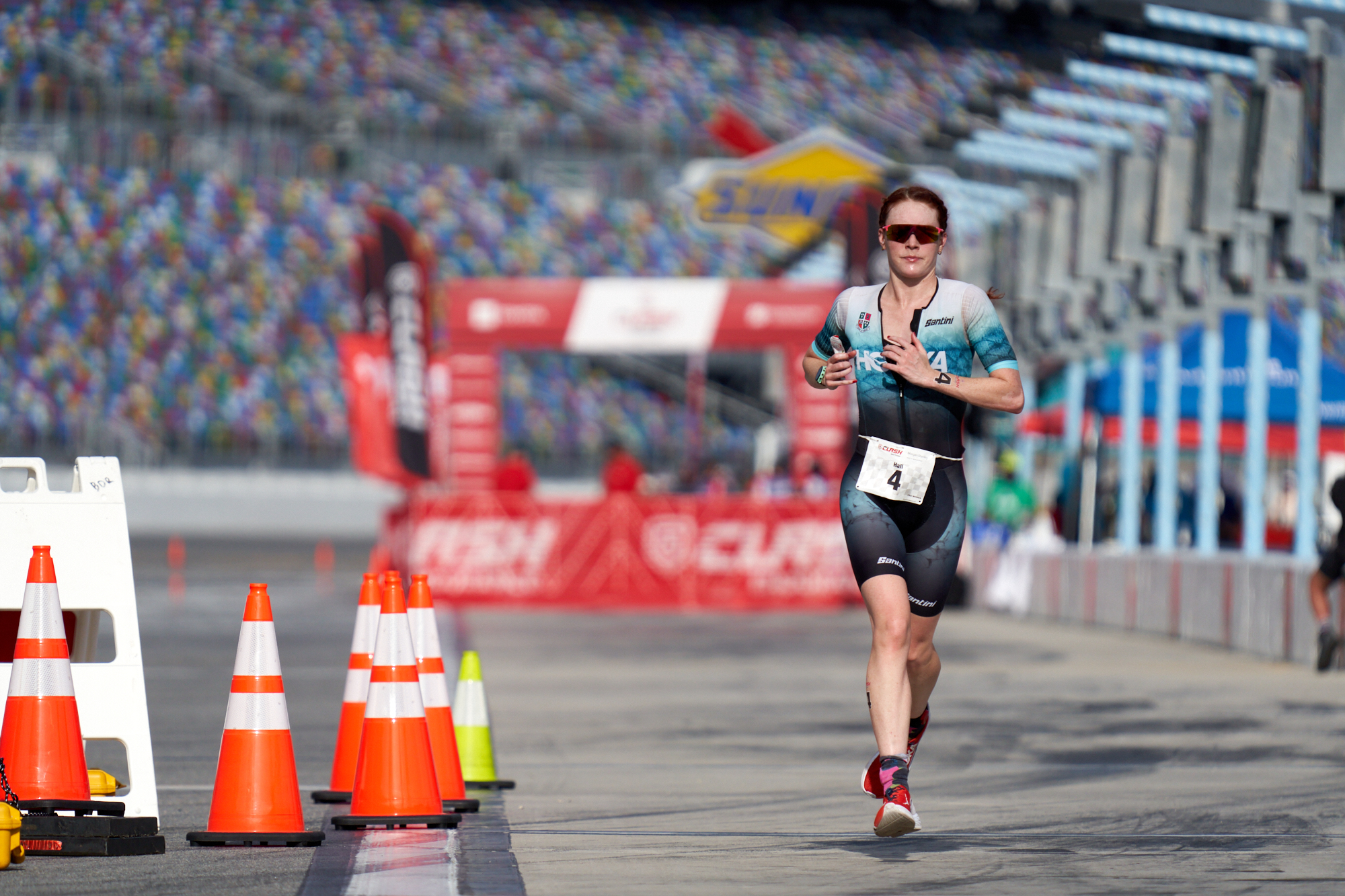
I don’t think so. I tend to put it all out there when I race, so I really had nothing left at the end. Even though I wasn’t like physically on the floor, I was just mentally done.
It was like a dagger to the heart when Jackie came past in literally the last kilometre. But that’s racing, it comes down to the wire sometimes. That’s why we love it, and sometimes why we hate it.
From that, you qualified for the Challenge Championships, which your dad also qualified for in his age-group. How did that feel?
It was awesome because it was my dad who actually got me into triathlon, when I was eight years old. It’s so nice that I get to share that with my family. My mum goes to races with my dad and my brother’s head triathlon coach at Loughborough University, so we’re big into triathlon!
You came off British Triathlon funding in 2018, what did you learn from training and racing with the British women’s team?

So much! With Helen [Jenkins], it was just nice to see that you can be a lovely person and at the top of your game; you can do it all if you do it right. I matured a lot over those years. There’s such a good group of girls, who’re all very, very successful.
Helen was the start of that in 2012, and it’s just so nice to see that’s there’s a legacy now with so many girls coming through.
The PTO list your compatriot and friend Jodie Stimpson as your rival. How do you feel about that?
Jodie’s a fantastic athlete, we’ll hopefully be doing a lot of racing together over next year. [GB pro] India Lee’s riding is also insane, she’s not to be underestimated.
And I’d love to race Nicola Spirig again [before she retires at the end of 2022]. I raced her in [Challenge Mallorca] Peguera in Spain last year and I was trying so hard to hold her off, but she caught me on the last 15km. She’s a phenomenal athlete.
What does a typical week’s training look like for you?
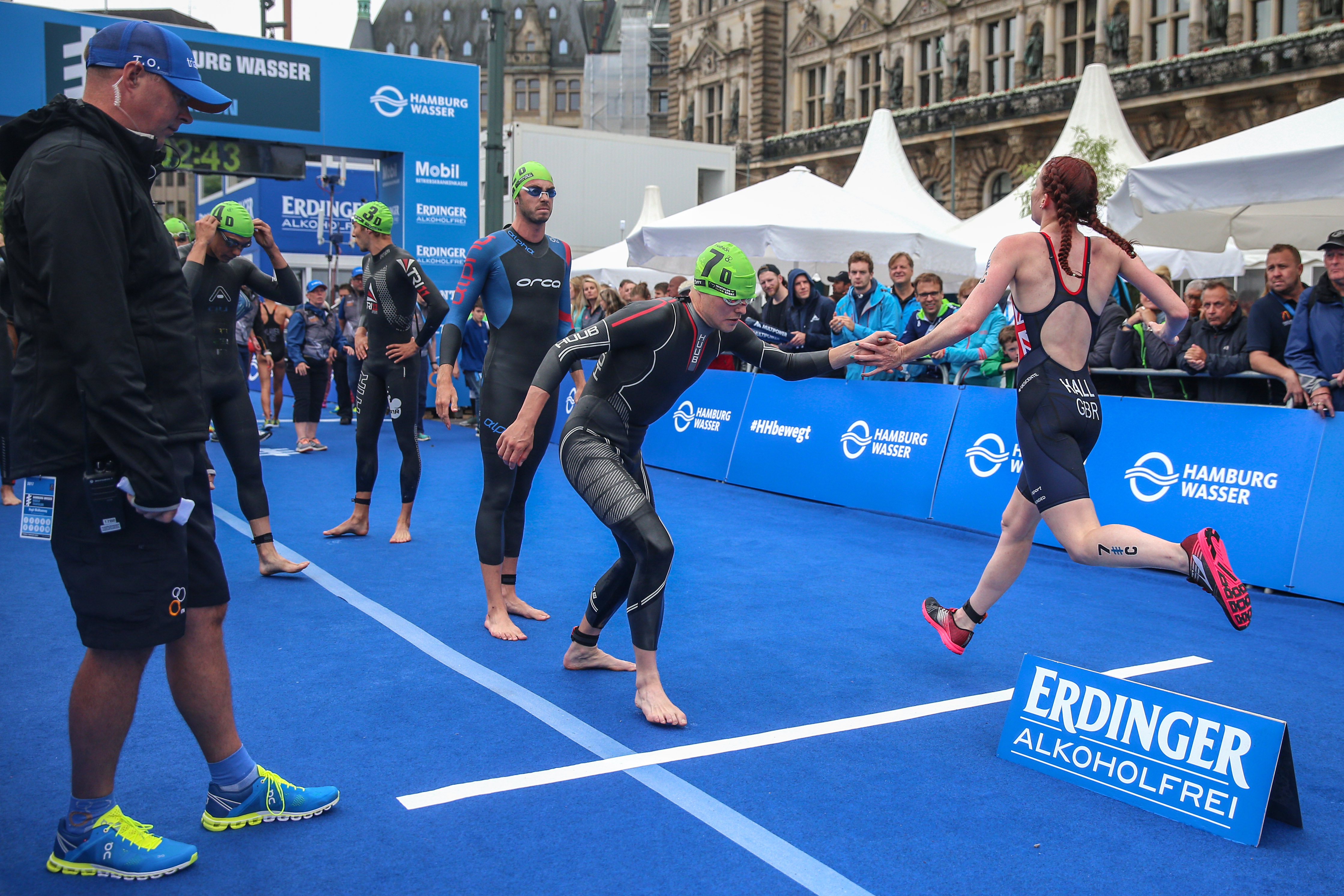
I swim five times a week on weekdays. I have two days off riding, so that’s five times a week. Then I run pretty much every day, around six times a week.
I’ve also started doing gym. I’ve got very floppy feet, they’re just very big and awkward, like boats! So I need to make sure that my lower limbs are strong and my core’s good, that’s key for me. Everyone’s individual, though.
I’ve been told that Mario Mola doesn’t do it [strength work], whereas some athletes swear by it – Jonny [Brownlee] does it twice a week.
We heard a rumour that you plan to complete your first Ironman next year to mark 10 years since the 2012 Olympics. Why this goal?
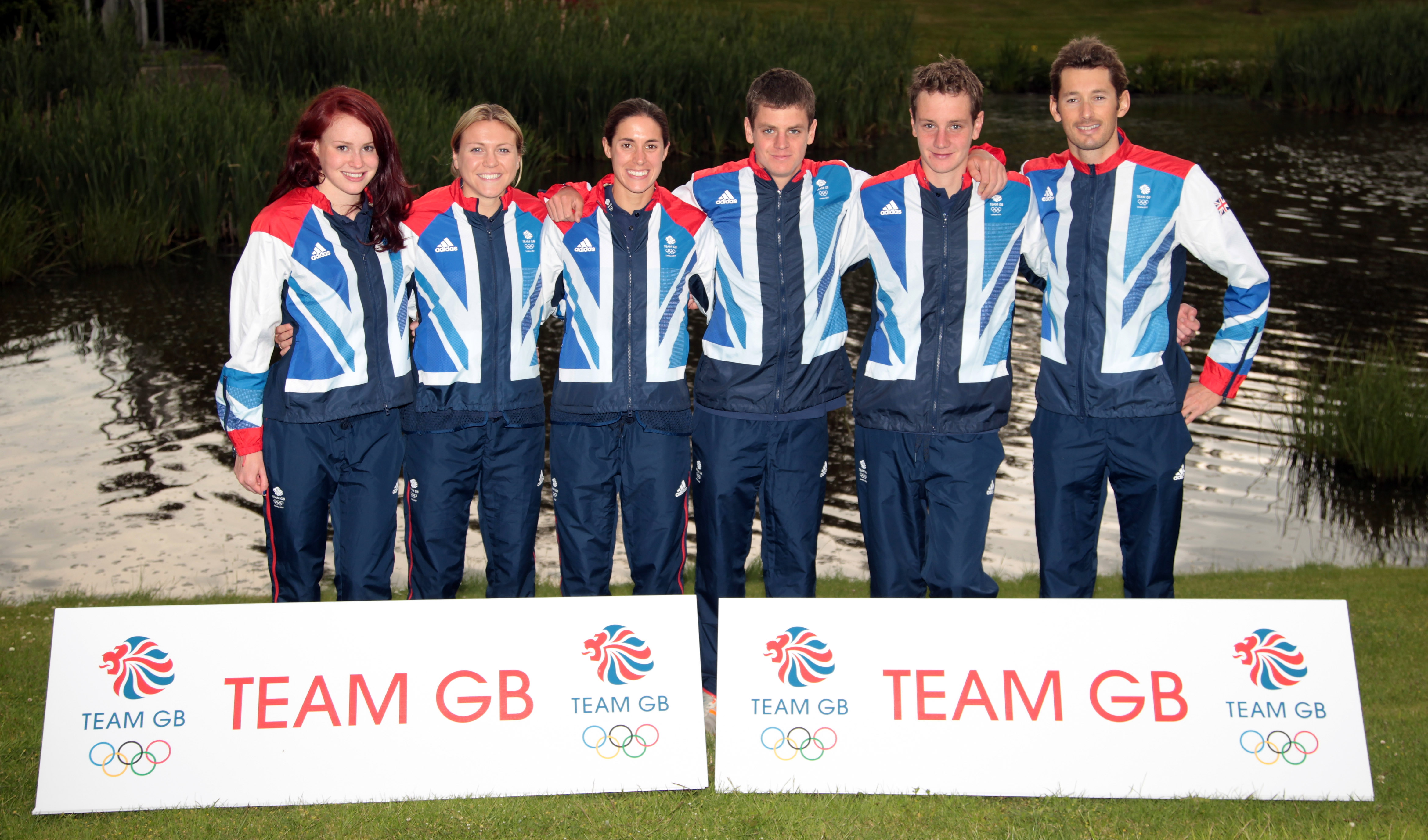
After last year, a lot changed. I was going to retire and then after the year I had, I got a lot more confidence. I really want to give it a go, but to do it right and not just for the sake of it.
For the first part of this year, it’ll be very much 70.3 and half-distance focused, and making sure I hit my goals for what I want do. Then towards the back end of the year, I’m going to look for a full distance.
I don’t think I’d change much in my training. It’d just be things like going from max four hours up to six on a Sunday long ride. I’ll do some longer runs as I’ve never gone over 90 minutes.
Swim-wise, I’d keep everything the same and just put in some more volume for a block of training, and periodise that training specific to full distance.
When you stepped up from Olympic to middle-distance racing, what were the main challenges?
My pacing, it was terrible. I remember the first one I did was Lahti [70.3 Ironman] in Finland, in July 2019. I swam pretty hard, rode really hard, and my bearings had gone on the bike.
They tried fixing it before the race and it just collapsed, which meant I was just moving about in the frame. I lost a lot of power. I also didn’t have the right equipment.
I didn’t have an aero helmet, or a proper tri-suit. There were loads of things that I could’ve done better! And then I absolutely screwed up my nutrition – not enough gels.
The great thing about 70.3 and full distance is that you’re forever learning. From what I gather, there’s never a perfect race. There are always variables that you just can’t control.
I think that’s why we love what we do, because it keeps you on your toes. I’ve learnt a lot and come a long way since that first race.
You’ve been in the sport for a long time, is there anything you’d like to see change?
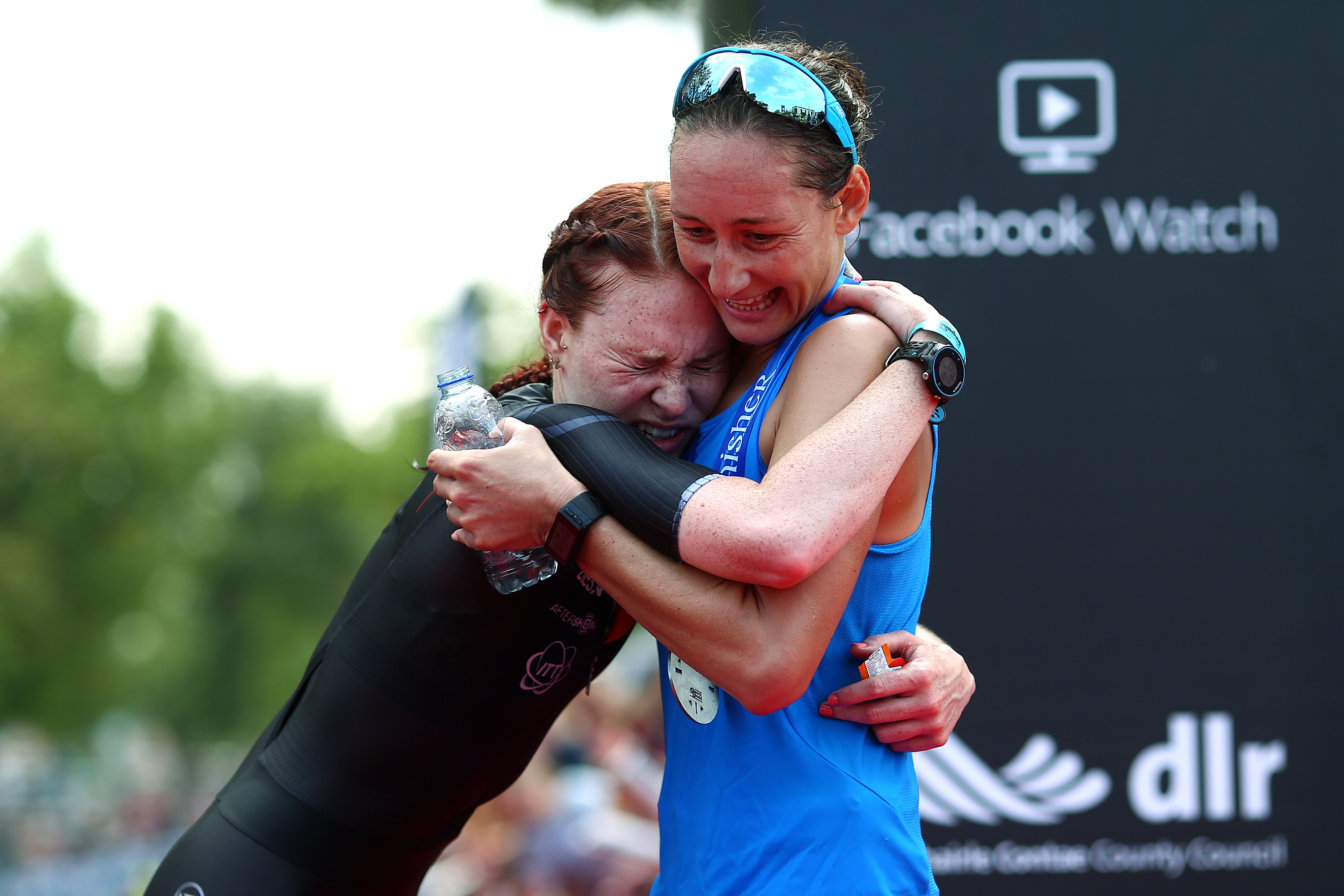
In the sport in general, I think the PTO are doing a great job of supporting athletes in long distance. Things like the Super League are awesome, and provide another avenue for athletes.
Triathlon’s such a cool spectator sport, so I’d love to see more of that. But looking at how athletes are treated, and from being in that world of the ITU at Olympic distance, sometimes I think you’re seen as commodities and not as people.
It’s also hard when you come off funding. I’d love to see a bit more support for young athletes and those who are potentially moving away from the sport.
It can be difficult [to change paths] when you’ve done triathlon for such a long time; it’s your job, your lifestyle. You miss birthdays and funerals and all sorts.
Then when that’s taken away from you, it’s difficult to then come away from it and think: ‘what am I doing with my life? What can I do?’ It’s self-worth as well. The biggest thing is to not overthink and then to try and find your way in the world a little bit.
Lucy’s top career highlights
30 August 2021
Takes the win in Slovakia at The Championship, Challenge Samorin.
4 August 2018
Sets up the victory for the Leeds I team at the British Triathlon Mixed Relay Cup in Leeds.
11 February 2017
Another strong sprint finish against teammate Jess Learmonth secures Lucy the win at the Cape Town ITU Triathlon World Cup.
15 October 2016
First place in Turkey at the Alanya ETU Final Triathlon European Cup.
26 June 2016
Pips Learmonth to the post at the Châteauroux ETU Sprint European Championships.
26 July 2015
Wins the European U23 Triathlon Championship.
4 August 2012
Sets the pace in the swim at the London Olympics to help teammate Helen Jenkins to fifth.
Top image credit: CLASH Endurance




